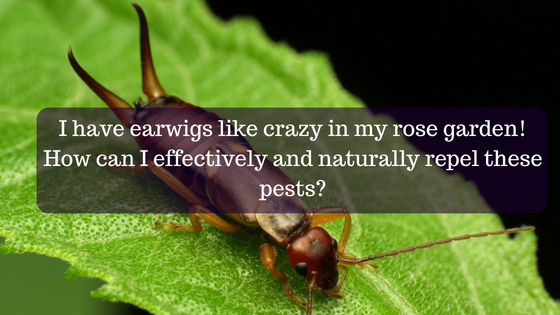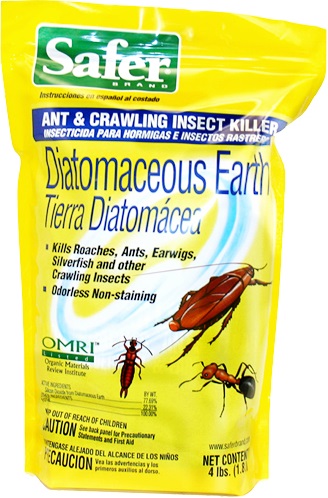
Believe it or not, some people actually consider earwigs to be beneficial garden insects. They do feed on a lot of common garden pests such as aphids and mites. And contrary to the old wives’ tale about them crawling into your ear (shudder), they’re harmless to humans. But an out of control population of earwigs can cause a lot of problems. And, let us be frank, they’re super icky. So, here are a few all-natural ways to keep your earwig population manageable.
Cultural Controls Earwigs love dark, damp places to hide. With all the rain we’ve had this spring, they’re in earwig heaven! Remove any potential earwig hideouts by cleaning up all dead or decaying plant material and any other garden debris around your rose garden.
Traps Probably the easiest and most effective way to control earwigs in the garden is with homemade traps. They’re simple, non-toxic and will only target greedy earwigs. There are several different kinds of traps you can find online, but the two we’ve found to be most effective are oil traps and newspaper traps.
To make an oil trap, just take a shallow tin can (like a cat food or tuna fish can)and bury it in the ground so the rim of the can is level with the soil. Then, fill the can with about ½” of vegetable oil. The earwigs will be attracted to the oil, crawl in and drown. You’ll just need to empty the traps each morning. Some gardeners also suggest bacon fat, soy sauce, fish oil and even beer as earwig bait.
For a newspaper trap, just roll up an old newspaper and secure it with a rubber band. Then dunk it in water. Lay the wet newspaper at the base of your roses. Earwigs will think they found a great place to spend the night. In the morning, you can drop the newspaper into a bucket of soapy water to kill the earwigs inside and throw it away.

Diatomaceous Earth If the thought of emptying traps full of earwigs each morning is not appealing, you might try a thin barrier of Diatomaceous Earth (DE) around your roses. DE comes from a naturally-occurring sedimentary rock that crumbles into a fine powder. It’s made up of fossilized remains of algae, and not to get too technical (or gross) it dehydrates and kills most crawling bugs that come into contact with it. Just apply a thin ring around your roses and re-apply after rain. DE is approved for organic gardening, but like any insecticide product, always read and follow all the directions on the bag.
